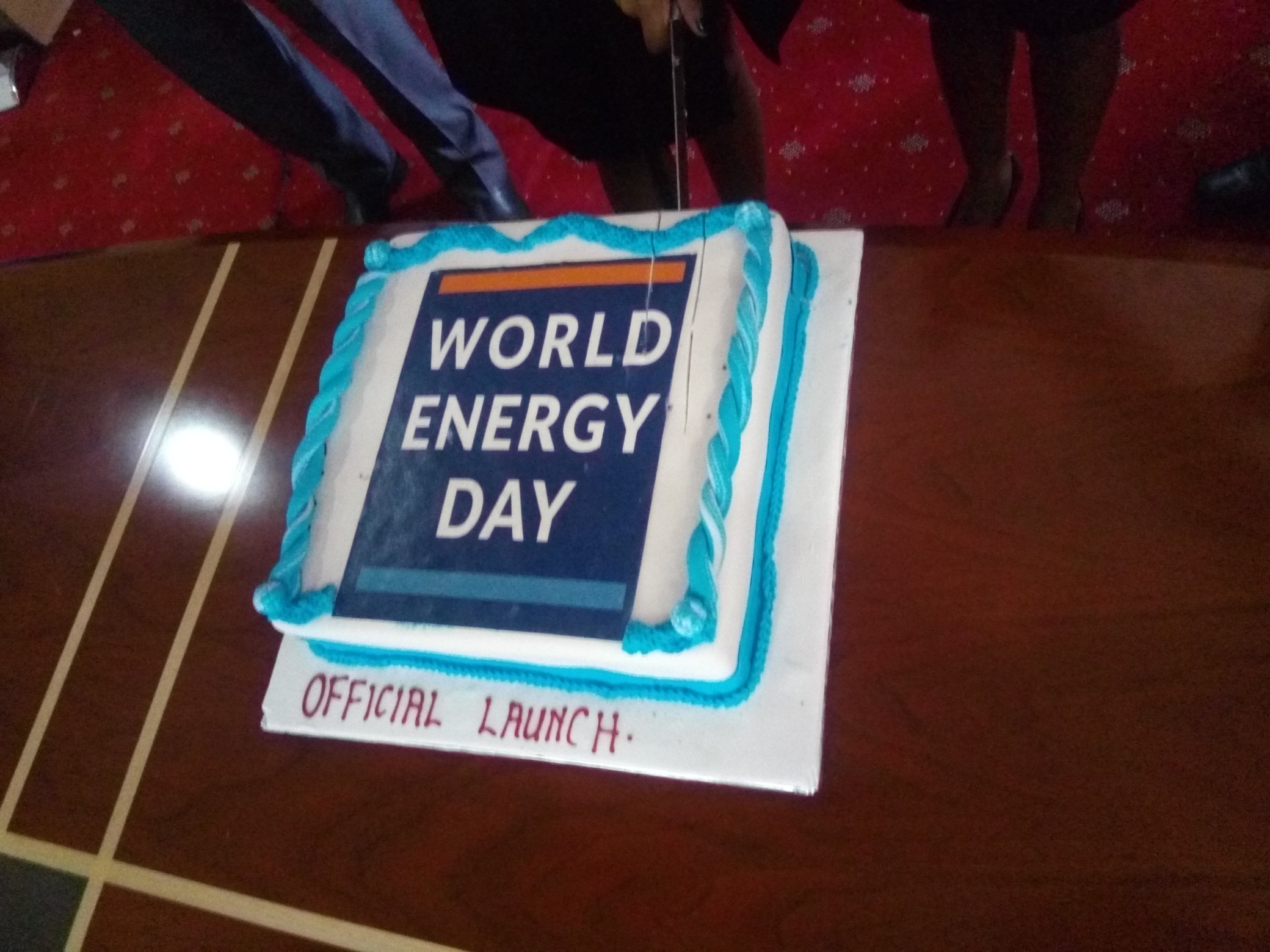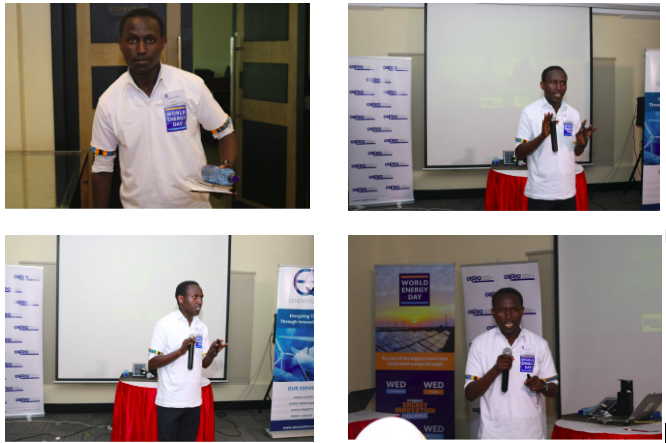On World Energy Day (WED) we come together and bring awareness around global energy and related issues. Energy efficiency and clean energy enhances life and conserves environment. WED challenge creates a platform that rallies creation and implementation of policies that increase energy efficiency and conserve resources such as water. In addition, encourages harnessing renewable energy and climate conservation that reduces carbon footprint.
In 2018 participated in the students world energy innovation challenge and made it through finals. Various energy stakeholders organised, came together and kicked off the energy week followed by a conference. They include; WED, EEnovators limited, Association of Energy Professionals East Africa (aepea), certified energy professionals and managers, carbon track monitoring systems kenya, Association of energy engineering (AEE) South Africa, Energy Training Foundation Uganda, National Renewable Energy and Energy Efficiency Alliance among others.

Figure 1: 2018 WED energy week cake

Figure 2: Innovation challenge finalists (top left), WED group photo (top right), celebrations ( bottom right) and myself.
Wonderful key notes were presented by Ibrahim, Yolanda, Eng Simon, Kamal Gupta among others. I presented asustainable agriculture project titled; Real time monitoring and control of greenhouses using LoRaWAN technology, IoT, Cloud Computing and Solar energy. Dubbed “famaconix”.

Figure 3: Sensors assembly in the preliminary work.
A system that is solar powered collects greenhouse environment data using sensor network embedded with Nucleo-F446RE development board. The data is wirelessly and seamlessly transmitted to a network server via lora radio gateway from transceiver on the node. Later data is pushed to a cloud computing data infrustructure. The data is channelled through a data pipeline for processing. Finally, the data is visualised in real time on a front facing application from a database. Feedback from analysis is used to switch on and off water pumps, fans, solenoid valves and lights. In addition, the farmer receives the feedback in SMS, tweet or email form. Its main objective is to conserve water used in irrigation and energy for reduced cost of production in farms.

Figure 4: Project presentation
Renewable energy is environmental friendly. This project reduces water and energy consuption by 30% and 40% respectively.

Figure 5: Awards
Special thanks to Dr Ciira wa Maina, Kimutai Ngetich, ARM Mbed for hardware, DSA and every one who put effort to this project.